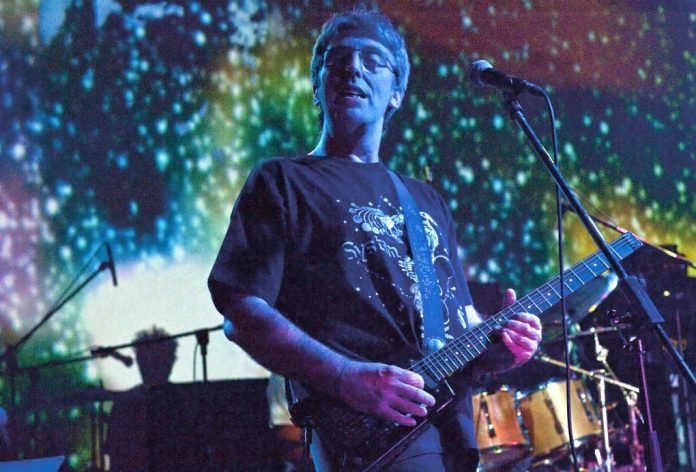HIT CHANNEL EXCLUSIVE INTERVIEW: June 2012. We had the great luck to talk to a great psychedelic rock guitarist, a successful producer and ambient techno cult hero: Steve Hillage. He’s very busy with his ambient techno band, System 7 and has also recorded with Gong, Khan (with Egg’s Dave Stewart), Mike Oldfield, Soft Machine’s Kevin Ayers, The Orb, Ozric Tentacles and Hawkwind’s Nik Turner. His solo albums were produced by rock giants like Pink Floyd’s Nick Mason and Todd Rundgren. During ‘80s he produced records for Simple Minds, It Bites, Murray Head, Nash The Slash and Robyn Hitchcock among many. Read below the very interesting things he told us:
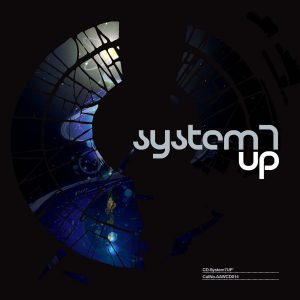 Are you satisfied with the feedback you got so far from fans and press for “UP” album?
Are you satisfied with the feedback you got so far from fans and press for “UP” album?
I’m very happy with it. I’m very satisfied with “UP”. It’s a very good follow-up of the previous System 7 album, “Phoenix”.
Is there any particular concept that connects the songs of “UP”?
Well, the main thing is that we spent a lot of time in Berlin, and do quite a lot of work and some songs for this album with A Guy Called Gerald. He was one of the beginners of acid house here in UK and now lives in Berlin. He’s a well-known figure in UK dance music. We spent a lot of time with him and we wrote some tracks with him. One thing I found very nice about the Berlin thing, is that its music is very happy and joyful. It’s not like the ‘90s when techno was very dark and moody. He wanted it more joyful and he experienced it when he went in psychedelic trance area. I found in Berlin a joy that I was missing, that’s why I called the album “UP”. It’s UP-lifting. Not like cliché trance music. More on the techno side of things.
Did you try anything for the first time during the recordings of “UP”?
We worked with A Guy Called Gerald for the first time. We wrote tracks in Berlin, we had never done that before. But technically, it’s just a sort of learning new little tricks and trying some little things. We did remixes, which is a progression. No hugely great forward, technically.
Did you enjoy the making of Gong’s “2032” album (2009)?
Yes, very much! It was a very-very enjoyable experience. In a way, it was a follow-through from the Uncon Festival in Melkweg, Amsterdam in November 2006, which was a very wonderful event, very joyful.
Are you proud of Gong’s “Radio Gnome Invisible” trilogy (“Flying Teapot”, “Angels Egg”, “You” albums)?
Yes, I played on “Flying Teapot” and I did some part of the writing on “Angels Egg” and “You”.
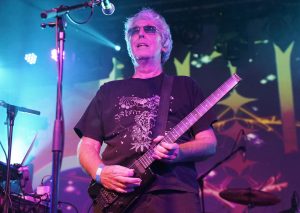 Do you still like these albums? These are classic ones.
Do you still like these albums? These are classic ones.
Yes, classic Gong albums. I do like them. These are wonderful albums. I’m very proud of them.
Do you remember any funny/unknown/unexpected story or trivia from the sessions of Kevin Ayers’ “Bananamour” album?
Oh, that was very long time ago!! We had a great time. The most important event that happened in my period with Kevin, was meeting through Kevin’s band, Gong. We had a jam session, Kevin and I, with band members of Gong, including (ed: saxophonist and flautist) Didier Malherbe in December 1972. And the jam went so well, that I kind of changed bands because if this gig.
Do you consider as one of the highlights of your career the live-in-the-studio performance of Mike Oldfield’s “Tubular Bells” album for BBC?
I think it’s a high point. One of many. I enjoyed working with Mike. We were sharing the studio with him when we did “Flying Teapot” album for Gong. We were working on “Flying Teapot” and he was working on “Tubular Bells”. The story started from the beginning in 1973.
How difficult was to have Todd Rundgren and Nick Mason (Pink Floyd drummer) as producers in your “L” and “Green” albums?
How did we get them doing? They expressed some interest in working with me and arranged this to be made. We had a contact with Nick from the last Gong album I was involved, “Shamal” (1975). He co-produced that. The Gong album after Daevid Allen left. I had also a small involvement in “Shamal” because that happened when I was leaving Gong myself.
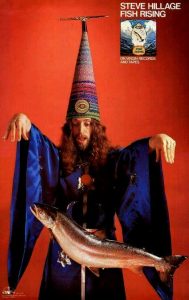 Do you miss your Ladbroke Grove days?
Do you miss your Ladbroke Grove days?
This is the area where I’m speaking to you now. I live in this area since 1972.
Can you describe us these UK Underground days (International Times newspaper, The Deviants, Hawkwind)? You did some albums with Nik Turner from Hawkwind, too.
Notting Hill was quite important in UK psychedelic underground. But also we had a strong West Indian presence, which now we are celebrating in Notting Hill Carnival. But it was also a big place for punk. The Clash came from Notting Hill. Killing Joke were based here. They are good friends of mine. I had a partnership with Youth, one of the members of Killing Joke (ed: and great producer too). Notting Hill is an important part of London.
How adventurous was the transition from a psychedelic/progressive rock guitarist into an ambient techno musician?
For me, it was a very obvious transition. The ‘70s progressive rock musicians don’t understand it, I don’t know why. For me, it was completely normal in nature. From the ‘80s the psychedelic rock almost died out and the psychedelic art scene from the mid ‘80s moved towards electronic scene. Even from the early ‘80s. So, I went then with the flow. Along with a few other people, but not that many. I’m constantly surprised about how few other psychedelic rock musicians who were active in the ‘70s, made that transition, and I don’t understand that. It is the way it is. I do it from my heart and I love it.
Do you think Pink Floyd’s “Ummagumma” studio album (1969) is one of the first ambient records in music history?
To a certain extent. It’s quite rocking as well. It’s a great-great psychedelic album. I love it! I’m really into “Several Species of Small Furry Animals Gathered Together in a Cave and Grooving with a Pict”. That’s ambient, he-he (mad laughs) !!!!!!
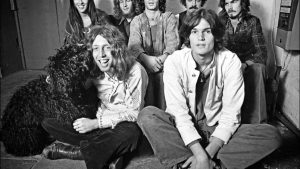 Are you happy with the triumphant return of LP format?
Are you happy with the triumphant return of LP format?
Obviously, I don’t believe there is a vinyl revival in dance music, because vinyl was always used in clubs for mixes by the DJs . When we did Gong’s “2032” album, we made a deluxe vinyl version on 180-gram vinyl. I did a very interesting comparison in the studio: I set up a vinyl deck really well and I compared the vinyl test pressing with the absolutely digital first generation technology. It sounded different, but it sounded better. In some ways, I really liked it in some tracks. I think vinyl is an unusual format these days. I didn’t like it for (ed: his solo) “Rainbow Dome Musick” ambient record from 1979. I think it sucked on vinyl. I hate it on vinyl. Because of its scratch, I couldn’t hear it. But I enjoyed “Rainbow Dome Musick” when I got it on CD. For music with drums and beat, I think it wasn’t that good thing.
Would you like to do an album with Brian Eno?
I know Brian Eno, I know him quite well. I worked with him, with an Algerian artist called Rachid Taha, on several tracks (ed: for Rachid Taha’s “Tékitoi” album, 2004). I did some gigs with him. I ‘m not sure if we can make an album together. I don’t think that could work very well making an ambient album together. We had a slightly different approach. But when we come together we have a shared love for Arab music.
Is there anyone you’d like to work with and hasn’t happened yet?
I ‘d love to do a track with Jeff Mills, the Detroit techno legend. Many years ago, I wanted to work with Peter Gabriel (Genesis), but I think now he’s very slow. It seems to take about 10 years to make a track. It’s frustrating that he’s bored.
Bob Ezrin (Pink Floyd, Alice Cooper, Kiss, Peter Gabriel producer) told me that “in Peter’s world things can take a very, very long time”.
(Mad Laughs) I love him, I love Peter Gabriel, but I don’t know if I could work with him!! He’s too slow.
Have you ever rejected an offer and then regretted it?
Nothing major.
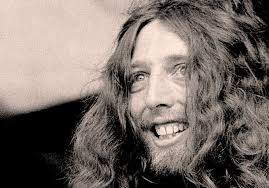 Do you think rock’n’roll is dead and everything now is about managers, contracts and percentages?
Do you think rock’n’roll is dead and everything now is about managers, contracts and percentages?
That’s a good question! In ‘60s and ‘70s was all about managers and contracts. I think now, despite all the problems with free downloading and the music on the Internet and the value of music declining, it’s actually easier now for an artist to take control and running a career without being extorted by managers and agents. So, I think in some ways, things look better now than they were. Nearly everybody in ‘60s and ‘70s was exploited on cloudy contracts. We were. All these contracts in Virgin Records were terrible. Now, that we release our stuff through our own label, it’s fantastic. We release System 7 and Mirror System on A-Wave. We release Gong’s “2032” album on an exceptional A-Wave label, called G-Wave. This is the first Gong album that all the consisting members were paid royalties. Everyone was paid royalties. We made a profit. Now we have the “Steve Hillage Band live at Gong Uncon event”, which now we are re-releasing it. It came out first on first printing in 2009, now we are giving it a full release on G-Wave. We release it on 10th September and it’s on our label. We are in control and it’s great.
Do you think you should have received more recognition for your work all these years?
I don’t know, because I didn’t really play the rock ’n’ roll guitar hero game. I didn’t like it. Because I didn’t play that game, I was very free. I’m happy about that really. That is one of the reasons I moved into the electronic sphere.
You are in the music industry all these years. Do you think money and fame change a person? You know Sting for years, too.
I always found him a nice guy. I haven’t seen him for a few years. If you had an astonishing amount of money, obviously that could change your perspective of life. Because you don’t have the need to work tomorrow. That would change anyone’s perspective, as if you would win 100 millions on a lottery. The best way is to keep working on something you enjoy doing. To keep out your creativity working without being told what to do. I’m happy to do that for more than 40 years. That’s worth for me more than money..
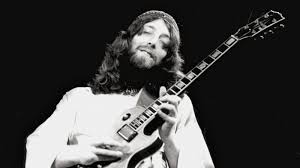 Who are your influences as a producer?
Who are your influences as a producer?
George Martin (The Beatles producer) and Trevor Horn (Yes, Paul McCartney). From the persons who produced my albums, I learned a lot from Malcolm Cecil and Nick Mason. I think music is far beyond producing. My number one hero is Jimi Hendrix. All levels.
What kind of music are you listening to this period?
I’m listening mostly dance music. There is a great new record that is coming out by The Orb with Lee “Scratch” Perry, the legend of dub reggae. It’s fantastic. Alex (ed: Paterson, The Orb) played me some tracks last week and sounded fantastic.
Is there any cover you’d like to do?
In the next Steve Hillage album I wish to do some more covers. I ‘d like to do “Love My Way” from The Psychedelic Furs. Todd Rundgren was their producer.
You’re really into ‘80s music.
Yes, some good thing happened during the ‘80s. I didn’t produce many albums for my own, I produced many records for other artists: Simple Minds, It Bites, Murray Head, Robyn Hitchcock. I put up a lot of new musical knowledge in the ‘80s. For some people, wasn’t a good period, for me it was great the ‘80s.
Do you like Depeche Mode?
I do. I respect them. It’s a very important band.
I don’t like them. I think Depeche Mode and U2 are overrated bands.
No, no, no. I don’t think so. “Everything Counts (In Large Amounts)” (ed: Depeche Mode song) is brilliant.
U2 had always great producers. I don’t think they could do an album with the budget of a System 7 record.
Totally different things.
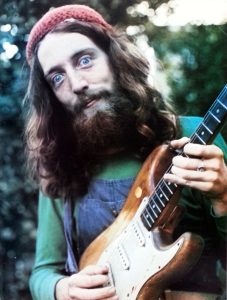 How possible is to play soon in Greece?
How possible is to play soon in Greece?
We need a Greek promoter to book us. I’m working on various projects. I would love to come with System 7. We are going to do another Steve Hillage Band tour in one year or two, if anyone is interested in booking us. There is another project I want to mention to you, called Phoenix Rising. It’s a collaboration between System 7 and a Japanese psychedelic rock band called ROVO. We play a mix of techno versions of ROVO tracks and ROVO live versions of System 7 tracks. It’s very interesting. We are going to write a new album in September. We are going to release the album next year and do a tour. Hope to come to Greece. System 7: Miquette (ed: Giraudy, the other half of System 7) and myself, and the ROVO band: two drummers, bass player, another guitarist, a really good keyboard player and an electric violin player, Yuji Katsui. He played on a few tracks on the last System 7 album and on Gong’s “2032” album. It’s very interesting the sound of his electric violin and my electric lead guitar, it’s a little bit like Mahavishnu Orchestra and John McLaughlin. Like a psychedelic electronic Mahavishnu Orchestra. You’ll hear about the project Phoenix Rising during next year.
A huge “THANK YOU” to Steve Hillage for his time and to Billy James for his valuable help.
Please check out http://www.a-wave.com/system7


